On June 14, 2023 , the Energy Digitalization for Carbon Neutrality Roundtable was held in Beijing. The roundtable was organized by the Center for Environmental Education and Communications of Ministry of Ecology and Environment (CEEC-MEE), co-organized by the US-China Energy Cooperation Program (ECP) and China New Energy Chamber of Commerce (CNECC).
Dr. Tian Chengchuan, Director General of CEEC-MEE, and Mr. Yang Yumin, ECP Board Co-Chair, delivered opening remarks. Nearly 40 experts and senior industry executives from institutions and companies, who are from China Electric Power Planning & Engineering Institute (EPPEI), NEA National Energy and Technology Resource Center, Microsoft, ConocoPhillips, JA Solar, Sylolink Material Technology, Beijing Energy Group, AspenTech, AmCham China, Eaton, Intel, Bureau Veritas, Emerson, and Cheniere Energy participated in the event.
Director Tian pointed out that digitization and decarbonization are the two major trends in today's global development. Digitization represents the primary direction of the new technological revolution, especially with information technologies such as the internet and artificial intelligence leading the way. These technologies have fundamentally changed human production and lifestyle. Low-carbon development is an inevitable choice for the economic and social development of humanity combating climate crisis. Carbon neutrality entails a wide-ranging and profound systemic transformation that involves changes in human production and lifestyle. The key of the revolution is the revolution of the energy sector. "Energy digitization" connects the two development trends of “digitization” and “decarbonization”, serving as both directions for the modernization of energy development and playing a vital role in the pursuit of carbon neutrality. There are three key areas for the future development of energy digitization to promote carbon neutrality: firstly, the construction and development of smart grids; secondly, the management of digitalization on the demand side of energy; and thirdly, the application of energy digitization in the field of daily life.
Mr. Yang Yumin, ECP Cochair, emphasized that energy transition, low-carbon, and carbon neutrality are currently hot topics of concern for enterprises in his remark. Under the global energy green and low-carbon transition agenda, an increasing number of energy companies, government agencies, research institutions, and industry partners are actively focusing on and promoting energy digitization efforts. This includes engaging in exchanges, discussions, project investigations, and cooperative demonstration projects related to energy digitalization technologies and industries. Such initiatives are conducive to attracting more responsible energy digitization companies to pay attention to the integration of energy and digitalization, and to foster their engagement in relevant exchanges, negotiations, and collaborations.
Prof. JIANG Rongan, Deputy Chief Engineer of China Electric Power Planning & Engineering Institute (EPPEI), Executive President of Energy and Innovation Research Institute of EPPEI, the lead of National Energy and Technology Resource Center of NEA, delivered a keynote speech titled ‘Energy Digitalization and Intelligent Development under the Background of Carbon Neutrality.’ In his speech, he specifically focused on two aspects: the construction of a smart energy system empowered by digital technologies, and the promotion of diverse integration to drive the green and low-carbon transformation of the energy sector.
Keynote by Prof. JIANG Rongan
Mr. Mike Yeh, Regional Vice President and Associate General Counsel of Microsoft Asia, highlighted Microsoft's long-term commitment to innovation and technology investment over the past decade in addressing environmental sustainability issues. Since 2012, Microsoft has been implementing an internal carbon pricing strategy to reduce carbon usage. In 2020, Microsoft introduced the Net Zero Commitment, pledging to become a company that is carbon negative, water positive, and waste-free by 2030. From 2030 to 2050, Microsoft will continue to eliminate its annual emissions, and furthermore, strive to eliminate all emissions associated with the company since its founding in 1975. Mr. Yeh also emphasized that the climate crisis cannot be solved by any single company, organization, or government alone. To ensure a healthy future for the planet, global society needs more collaboration, innovation, policies, and commitments.
Keynote by Mike Yeh
Mr. Markel Hübinette, the China President of ConocoPhillips, Mr. SUN Guangbin, Senior Vice President of JA SOLAR, Mr. ZOU Yuanjie, General Manager of Shanghai Sylolink Material Technology Co. , Ms. Grace CHEN, Head of Consulting and Solution Business of AspenTech China, Dr. FENG Wujun, Chief Researcher of the Energy and Technology Research Institute of Beijing Energy Group participated and engaged in a discussion and exchange session. These guest speakers shared their insight and experience of energy low-carbon transformation, the digital development in renewable sectors, energy-efficient and environmentally friendly materials for new energy vehicles, leveraging digital technologies in green hydrogen sector, and the integration and coupling of digital technology and energy revolution.
Mr. Michael Hart, President of the American Chamber of Commerce, in his closing remarks, highlighted that it is important to have this energy digitalization roundtable under China dual carbon background. The participated experts and speakers shared the latest status of energy digitalization, trend, opportunities and challenges, also shared the how smart technologies and digitalization solutions support the low carbon transaction and carbon neutrality in energy sector.
*The Energy, Climate, and Environment Roundtable Series is an interactive platform established by CEEC with support from ECP to facilitate the exchange and sharing of energy, climate, and environmental policies, technologies, sustainable development, and low-carbon innovation cases among industrial executives, scholars, policy makers. It aims to engage more interaction and discussion on the policies, technologies, sustainable development and low carbon showcases in the fields of energy, climate, and environment.

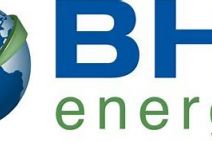
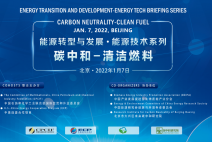
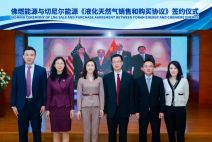

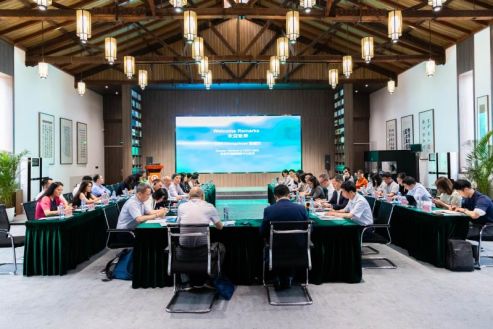

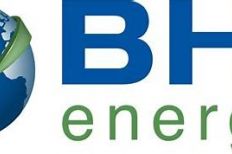
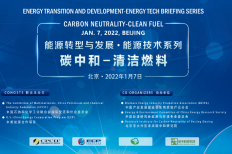
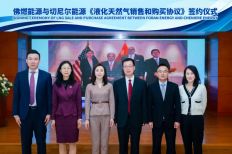

 京公网安备 11010502036951号
京公网安备 11010502036951号